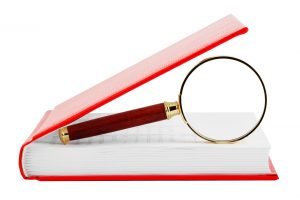How to Write a Great Literature Review
Every research paper and most lengthy academic papers, like dissertations or thesis papers, requires a well-analyzed and rich literature review section to show the reader that the student has performed a thorough evaluation of the research that has already been published on the essay’s topic. This step is essential to avoid duplicating what has been done before and to identify new areas for fruitful research.
It should be clear that it is not enough just to find a list of the sources used for the analysis of the problem. But for students who are not sure whether they know how to write a good literature review correctly, it can be helpful to take advantage of the professional literature review writing tips below:

Analyze the Problem and Collect Data
It is evident that before writing an essay, thesis, or dissertation, one should devote enough time to the analysis of the chosen topic to know exactly what to write about. So, a student will need to set up the fundamental questions which he wants to answer and the problems which require solutions. Only after the student has understood the scope of the research and the limits of the problem that is going to be analyzed, the student can try to start collecting sources for its analysis. Moreover, if one has established the research questions and point of the problem, it will be easier to find the appropriate literature to answer these research questions.
Make Sure the Source is of High Quality
Evaluating literature is the most difficult part of the literature review. Each type of resources requires careful and analytical evaluation, looking into the credibility and utility of the source, and evaluating it regarding depth and quality of information, as well as for how recently it was published. When you are looking at regular books, you will need to pay attention to the author, the publishing house and educational value of the book. Mass-market popular books are often less credible than those from university presses. If the author is a well-known scholar, you can trust this book and include it in the list of the review. Academic journals are another important source of information, and here it is important to check the publication date to make sure you have a feel for the latest research. In your literature review, you will need to, be able to speak to the credibility and importance of each source you select, so the more work you do at this stage, the easier the writing process will become.
Write an Introduction
When writing an introduction to the literature review, present the purpose of the research and your thesis statement to inform the professor about the aim of the research and the questions which you are going to investigate. After that, explain what books and periodicals you will use to answer the questions and to set the path for your own original research. Support your words with the direct examples demonstrating that the sources are beneficial to reach the desired goal.
Compare the Sources
Writing the body of the literature review, divide the paper into the logical sections dividing the research sources into the categories. It is important to demonstrate your awareness of the quality and content of the books and periodicals, so try to compare the sources to one another. Write about the positive and the negative sides of every source and write what the source is good for regarding using it to support your own methodology, research or conclusions about the topic. If there are controversial ideas of different perspectives from various authors on an individual question, mention it. Critically evaluate each source and discuss how it supports your paper and any gaps you found in the literature where additional research will be needed.
Conclude the Paper
In your conclusion, write about the most useful sources which can solve all the questions that you discussed at the very beginning of the paper. You will want to provide a critical evaluation that summarizes what is known about your topic from the literature and how your proposed research will fit into the body of scholarly sources on the topic by providing additional, supplemental or unique perspectives on the topic.
